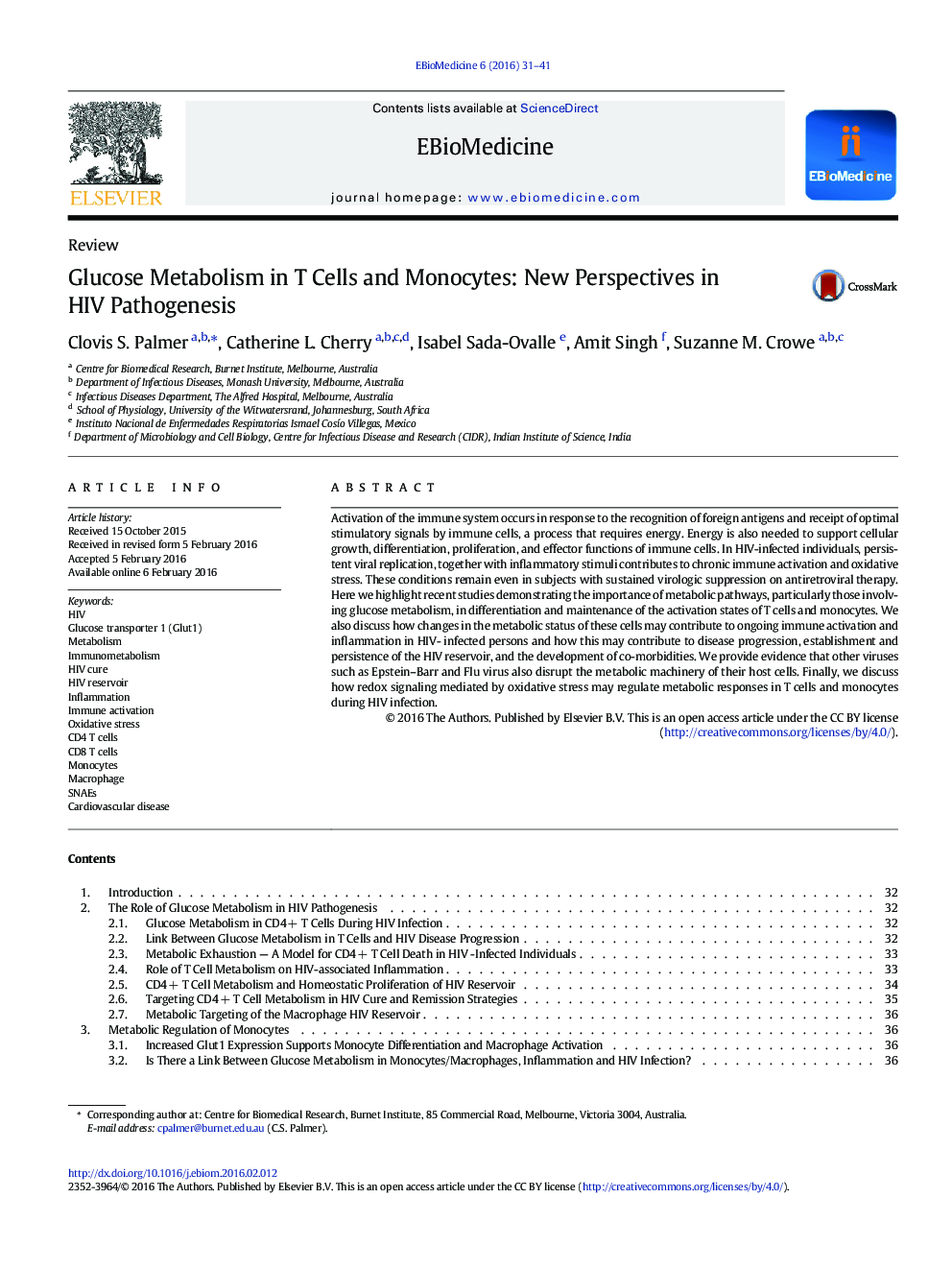| Article ID | Journal | Published Year | Pages | File Type |
|---|---|---|---|---|
| 2120662 | EBioMedicine | 2016 | 11 Pages |
•Dysfunctional glucose metabolism in CD4+ T cells and monocytes is a hallmark of HIV+ infection.•Increased glycolysis in CD4+ T cells in HIV+ individuals is associated with immune activation and low CD4+ T cell counts.•Increased glycolytic flux is required for virion production and increases CD4+ T cell propensity to apoptosis.•Glycolytic metabolites can disengage metabolism to control immune cell functions and promote survival of HIV-infected cells.•Immunometabolism offers novel opportunities for HIV cure and remission strategies.•Elevated Glut1 on pro-inflammatory monocyte is a potential biomarker for HIV-associated co-morbidities.
Activation of the immune system occurs in response to the recognition of foreign antigens and receipt of optimal stimulatory signals by immune cells, a process that requires energy. Energy is also needed to support cellular growth, differentiation, proliferation, and effector functions of immune cells. In HIV-infected individuals, persistent viral replication, together with inflammatory stimuli contributes to chronic immune activation and oxidative stress. These conditions remain even in subjects with sustained virologic suppression on antiretroviral therapy. Here we highlight recent studies demonstrating the importance of metabolic pathways, particularly those involving glucose metabolism, in differentiation and maintenance of the activation states of T cells and monocytes. We also discuss how changes in the metabolic status of these cells may contribute to ongoing immune activation and inflammation in HIV- infected persons and how this may contribute to disease progression, establishment and persistence of the HIV reservoir, and the development of co-morbidities. We provide evidence that other viruses such as Epstein–Barr and Flu virus also disrupt the metabolic machinery of their host cells. Finally, we discuss how redox signaling mediated by oxidative stress may regulate metabolic responses in T cells and monocytes during HIV infection.
